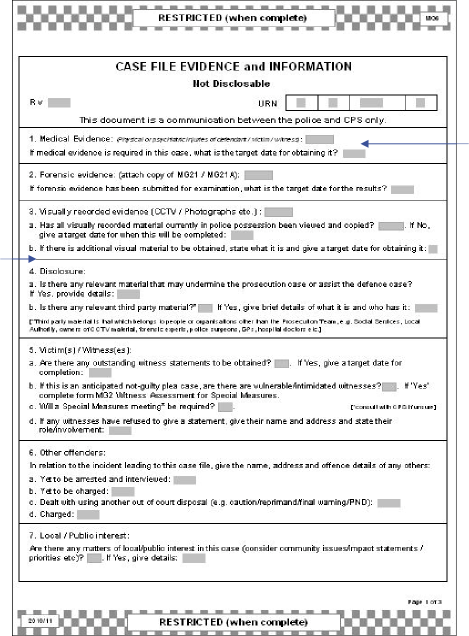
< Previous | Contents | Next >
Protection from Harassment Act restraining order.
Forfeiture order – this can be made where a person has been convicted of an offence in relation to the use or possession of property subject to this order to prevent any person claiming ownership of the property concerned.
Destruction order – is an order to destroy the property concerned, e.g. controlled substances, offensive weapons etc.
Proceeds of crime – Confiscation order. Where a defendant has benefited from his crime then the court may make a confiscation order. This order directs the defendant to pay a sum of money with a provision that if he fails to pay within a set period he will have to spend a further period in prison. With certain types of offences the court can look beyond the particular offence and decide whether the defendant has a “criminal lifestyle” and can then assess the defendant’s proceeds from all his criminal conduct.

Disclosure obligations are initially important: see 1.14 of Section 1 of the Manual of Guidance for more details.
Target date for medical statements is important as it enables a charging decision to be made. See Note 5 re relevant protocol.